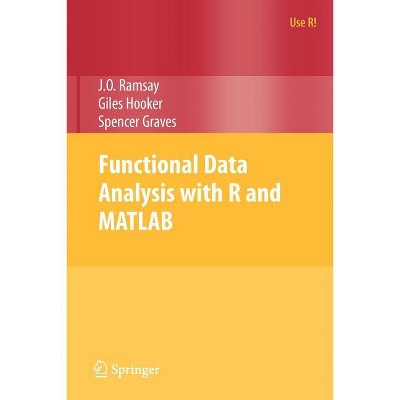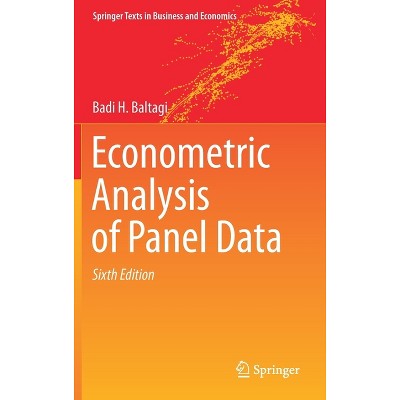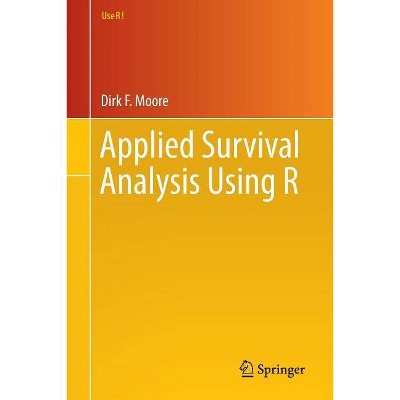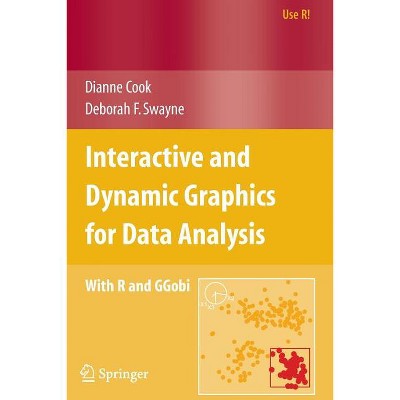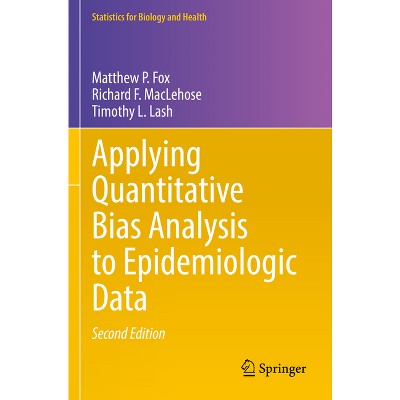Exploratory Data Analysis Using Fisher Information - by Roy Frieden & Robert A Gatenby (Hardcover)

About this item
Highlights
- This book uses a mathematical approach to deriving the laws of science and technology that is based upon the concept of Fisher information.
- About the Author: Professor Emeritus - B. Roy Frieden: B.S., M.S., Ph.D., Professor of Optical Sciences, Univ. of Arizona 1966-2002; books "Probability, Statistical Optics and Data Testing" (Springer-Verlag, 3rd ed., 2001), "Physics from Fisher Information" (Cambridge Univ.
- 363 Pages
- Computers + Internet, Information Technology
Description
Book Synopsis
This book uses a mathematical approach to deriving the laws of science and technology that is based upon the concept of Fisher information.
The approach that follows from these ideas is called the principle of Extreme Physical Information (EPI). It is shown how to use EPI to determine the theoretical input - output laws of unknown systems. Depending upon the system, these laws can be deterministic or stochastic and applicable to data used in many complex computational systems. Not only does information characterize the amount and quality of their data, but - much more basically - it can be used to analytically determine how the data arises out of the system, by the EPI principle. The book can be profitably read by someone whose level of math is at the level of an undergraduate degree in science or engineering.
From the Back Cover
The basic goal of a research scientist is to understand a given, unknown system. This innovative book develops a systematic approach for achieving this goal. All science is ultimately dependent upon observation which, in turn, requires a flow of information. Fisher information, in particular, is found to provide the key to understanding the system. It is developed as a new tool of exploratory data analysis, and is applied to a wide scope of systems problems. These range from molecules in a gas to biological organisms in their ecologies, to the socio-economic organization of people in their societies, to the physical constants in the universe and, ultimately, to proto-universes in the multiverse.
Examples of system input-output laws discovered by the approach include the famous quarter-power laws of biology and the Tobin q-theory of optimized economic investment. System likelihood laws that can be determined include the probability density functions defining in situ cancer growth and a wide class of systems (thermodynamic, economic, cryptographic) obeying Schrodinger-like equations. Novel uncertainty principles in the fields of biology and economics are also found to hold.
B. Roy Frieden and Robert A. Gatenby are professors at the University of Arizona. Frieden is in the College of Optics, and Gatenby is Chairman of the Radiology Dept. at the Arizona Health Sciences Center. Frieden has pioneered the use of information for developing image restoration approaches, and for understanding the physics of unknown systems, both nonliving and living. Gatenby has actively promoted the study of information as a determinant of healthy and malignant growth processes, and has developed integrated mathematical models and empirical techniques for this purpose.
Review Quotes
From the reviews:
"Roy Frieden has been exploring the consequences of studying physical phenomena on the basis of Fisher information and extreme physical information ... . therefore wish to emphasize that the truly original feature of this book ... is precisely its broad coverage; its demonstration that such a simple principle, easily grasped, is capable of yielding valuable results in such a wide range of fields of enquiry. I found Frieden's earlier books immensely original and intellectually thrilling and this one adds yet more weight to that opinion." (P. W. Hawkes, www.amazon.com, October, 2007)
"I personally have used and exploited the Fisher information theme in numerous papers related to quantum mechanics and relativity, in particular via relations of FI to the quantum potential. I would even say that this theme seems to have 'cosmic significance' and in the present arena of information technology, processing, retrieval, and distortion the book should be considered as must reading." (Robert Carroll, www.amazon.com, October, 2007)
"The book begins with an introduction by Frieden, which covers Fisher information and its uses when employing the EPI approach. ... This fascinating book is well organized, written in a careful and systematic way, and contains much new material. It will be useful to those interested in information technology (IT), processing, retrieval, and distortion. It is an excellent source of information for the study and research of exploratory data analysis." (P. R. Parthasarathy, ACM Computing Reviews, Vol. 49 (8), August, 2008)
About the Author
Professor Emeritus - B. Roy Frieden:
B.S., M.S., Ph.D., Professor of Optical Sciences, Univ. of Arizona 1966-2002; books "Probability, Statistical Optics and Data Testing" (Springer-Verlag, 3rd ed., 2001), "Physics from Fisher Information" (Cambridge Univ. Press, 1998), "Science from Fisher Information" (Cambridge Univ. Press, 2004); inventor of principle of Extreme physical information (EPI)
Dr. Robert A. Gatenby:
BSE, Princeton Univ. MD, University of Pennsylvania.







